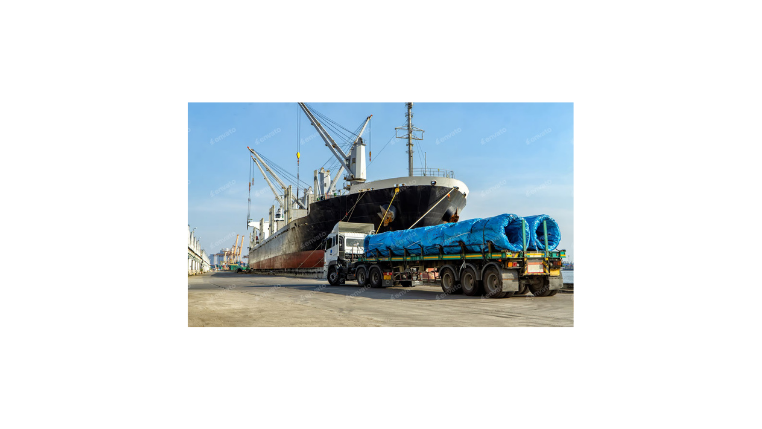From Data to Decisions: Overcoming Challenges in Freight Forwarding Analytics
In the digital age, data is the new oil, and for freight forwarding — an industry traditionally built on experience, relationships, and intuition — the shift to data-driven decision-making is a massive but necessary evolution. The potential is immense: imagine predicting shipping delays before they happen, optimizing carrier selection with AI, or providing clients with unparalleled supply chain visibility. However, the journey to unlock this potential is fraught with challenges. This article provides a realistic look at the hurdles of adopting data analytics and offers a strategic roadmap for success.
The Promise of Data Analytics in Freight Forwarding
Before tackling the challenges, it's crucial to understand the transformative benefits that are driving this industry-wide shift. A successful data analytics strategy can elevate a freight forwarder from a simple service provider to a strategic logistics partner.
- Enhanced Operational Efficiency: Analytics can identify the most efficient routes, the most reliable carriers for specific lanes, and the optimal consolidation opportunities, reducing transit times and manual effort.
- Improved Cost Management: By analyzing historical and real-time data, forwarders can identify hidden costs, benchmark carrier rates more effectively, and reduce expensive exceptions like demurrage and detention.
- A Superior Customer Experience: Instead of reactive updates, analytics enables proactive communication.Forwarders can provide more accurate ETAs, alert customers to potential disruptions, and offer data-backed insights to help clients improve their own supply chains.
- Strategic Business Growth: Data reveals patterns in trade lanes, customer behavior, and market demand, allowing forwarders to identify new service opportunities and make smarter, more informed business decisions.
The Hurdles: Why is Data Analytics So Hard in Logistics?
Despite the clear benefits, many freight forwarders struggle with implementation. The challenges are significant and deeply rooted in the nature of the industry.
- Fragmented and Siloed Data: This is the single biggest obstacle. Critical data is often scattered across dozens of disconnected systems: carrier websites, terminal operating systems, customs broker portals, internal TMS platforms, and countless emails and spreadsheets. There is no single source of truth.
- Data Quality and Standardization: The logistics industry is plagued by inconsistent and "dirty" data. Typos in port names, different date formats, and missing information make it incredibly difficult to aggregate and analyze data accurately. The principle of "garbage in, garbage out" is a constant threat.
- Lack of In-house Expertise: Traditional logistics expertise does not easily translate to data science. Many forwarders lack the personnel with the skills in statistics, programming, and machine learning needed to build and manage a sophisticated analytics program.
- Security and Privacy Concerns: Shipping data is highly sensitive. Sharing information between partners and across platforms requires robust cybersecurity protocols and clear data governance to protect client confidentiality and prevent breaches.
A Roadmap for Success: Implementing a Winning Analytics Strategy
Overcoming these hurdles requires a deliberate and strategic approach, not just a technology purchase.
- 1. Foster a Data-Driven Culture: Change must start at the top. Leadership needs to champion the use of data in decision-making, encouraging teams to rely on metrics and insights rather than just gut feelings.
- 2. Invest in an Integrated Technology Platform: The key to solving data fragmentation is to adopt a central platform that can ingest, clean, and standardize data from multiple sources. This creates the clean data foundation upon which all analysis is built.
- 3. Start Small and Demonstrate Value: Don't try to solve every problem at once. Begin with a specific, high-impact project, such as analyzing on-time performance for a key client or trade lane. A quick win will demonstrate the ROI and build momentum for broader adoption.
- 4. Prioritize Data Governance: Establish clear rules and policies for data access, usage, and security. This builds trust with both employees and clients and ensures you are handling sensitive information responsibly.
- 5. Upskill Your Team and Partner with Experts: Invest in training for your existing operations team to improve their data literacy. For more complex needs, partner with technology providers who specialize in logistics data and can provide the tools and expertise you need to accelerate your journey.
Conclusion
In conclusion, while the challenges of implementing data analytics in freight forwarding are real, they are not insurmountable. The transition from an experience-based to a data-driven operating model is a journey, but it's one that every forwarder must embark on to stay competitive. The companies that successfully navigate this path will be the undisputed leaders of the future, offering services that are not just efficient, but intelligent.
This is why integrated platforms like Modaltrans are so critical. They are designed specifically to overcome these data challenges by unifying information from carriers, clients, and partners into a single ecosystem. By providing powerful, out-of-the-box analytics and dashboards, such platforms empower forwarders to bypass the hurdles and immediately start making the data-driven decisions that will define their success.










